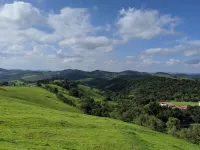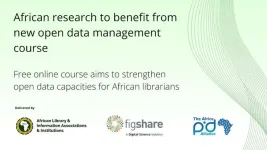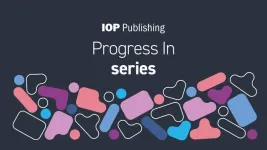(Press-News.org) CORVALLIS, Ore. – Using trees as a cost-effective tool against climate change is more complicated than simply planting large numbers of them, an international collaboration that includes an Oregon State University scientist has shown.
Jacob Bukoski of the OSU College of Forestry and seven other researchers synthesized data from thousands of reforestation sites in 130 countries and found that roughly half the time it’s better just to let nature take its course.
Findings of the study led by Conservation International were published today in Nature Climate Change.
“Trees can play a role in climate change mitigation, for multiple reasons,” Bukoski said. “It’s pretty easy to understand that forests pull carbon dioxide from the atmosphere and store it, and trees are something pretty much everyone can get behind – we have seen multiple bipartisan acts for tree planting introduced in Congress. This study brings a nuanced perspective to the whole ‘should we plant trees to solve climate change’ debate.”
Bukoski notes that expanding forests globally has been widely proposed as a key tactic against climate change since forests sequester atmospheric carbon dioxide in their biomass and soils. Harvested timber also stores carbon in the form of wood products.
There are two basic approaches to forest expansion, Bukoski said.
“Generally speaking, we can let forests regenerate on their own, which is slow but cheap, or take a more active approach and plant them, which speeds up growth but is more expensive,” he said. “Our study compares these two approaches across reforestable landscapes in low- and middle-income countries, identifying where naturally regenerating or planting forests is likely to make more sense.”
Using machine learning and regression models, the scientists found that natural regeneration would be most cost effective over a 30-year period for 46% of the areas studied, and planting would be most cost effective for 54%.
They also determined that using a combination of the two approaches across all areas would be 44% better than natural regeneration alone and 39% better than planting by itself.
“If your objective is to sequester carbon as quickly and as cheaply as possible, the best option is a mix of both naturally regenerating forests and planting forests.” Bukoski said.
The study suggests that natural regeneration is especially cost effective relative to plantation forestry in much of western Mexico, the Andean region, the Southern Cone of South America, West and Central Africa, India, Southern China, Malaysia and Indonesia.
Conversely, plantations are preferable to natural regeneration in much of the Caribbean, Central America, Brazil, northern China, mainland Southeast Asia, the Philippines and North, East and Southern Africa.
“Which method is more cost effective in a given location is a function of multiple factors, including opportunity cost, relative carbon accumulation and harvest rates, and relative implementation costs,” Bukoski said.
Other scientists in the collaboration were Jonah Busch and Bronson Griscom of Conservation International, Susan Cook-Patton of The Nature Conservancy, David Kaczan of the World Bank, Yuanyuan Yi of Peking University, Jeff Vincent of Duke University and Matthew Potts of the University of California, Berkeley.
The authors stress that reforestation is a complement to, not a replacement for, reducing emissions from fossil fuels. Achieving the entire mitigation potential of reforestation over 30 years would amount to less than eight months of global greenhouse gas emissions, they note.
The authors add that carbon is just one consideration when growing trees. Biodiversity, demand for wood products, support of local livelihoods, and non-carbon biophysical effects must also be considered when deciding where and how to reforest landscapes.
But they also point out that their findings suggest reforestation offers far more potential low-cost climate abatement than has been previously estimated.
END
How well does tree planting work in climate change fight? It depends, OSU research shows
2024-07-24
ELSE PRESS RELEASES FROM THIS DATE:
Komodo dragons have iron-coated teeth to rip apart their prey
2024-07-24
Scientists have discovered that the serrated edges of Komodo dragons’ teeth are tipped with iron.
Led by researchers from King’s College London, the study gives new insight into how Komodo dragons keep their teeth razor-sharp and may provide clues to how dinosaurs like Tyrannosaurus rex killed and ate their prey.
Native to Indonesia, Komodo dragons are the largest living species of monitor lizard, averaging around 80kg. Deadly predators, Komodos have sharp, curved teeth similar to many carnivorous dinosaurs. They eat almost any kind of meat, from smaller reptiles and birds to deer, horses or ...
Nanoscale device simultaneously steers and shifts frequency of optical light, pointing the way to future wireless communication channels
2024-07-24
It is a scene many of us are familiar with: You're working on your laptop at the local coffee shop with maybe a half dozen other laptop users—each of you is trying to load websites or stream high-definition videos, and all are craving more bandwidth. Now imagine that each of you had a dedicated wireless channel for communication that was hundreds of times faster than the Wi-Fi we use today, with hundreds of times more bandwidth. That dream may not be far off thanks to the development of metasurfaces—tiny engineered sheets that can reflect and otherwise direct light in desired ways.
In ...
African research to benefit from new open data management course
2024-07-24
Open data practices in African research institutions will be bolstered thanks to a new online course for librarians to coincide with International Open Access Week (21-27 October 2024).
The Open Data Management Foundational Course – to be offered entirely free over four weeks by open data experts – is a direct response to calls to strengthen the research data management capacity of librarians in Africa.
The course will be facilitated by AfLIA, the African Library and Information Associations and Institutions, as part of an ongoing collaboration ...
IOP Publishing extends scope of Progress in Energy as part of prestigious new journal series
2024-07-24
IOP Publishing (IOPP) is extending the remit of its journal Progress in Energy by accepting high-impact original research articles alongside its well-recognised review programme. Progress in Energy is part of a developing new Progress In series™, that builds on the reputation of IOPP’s prestigious journal Reports on Progress in Physics and is designed to unite communities looking to advance and explore progressive research across the physical sciences.
Progress in Energy is a highly selective, multidisciplinary journal with a mission to publish groundbreaking ...
Researchers record first-ever images and data of a shark experiencing a boat strike
2024-07-24
NEWPORT, Ore. – Hours after tagging an endangered basking shark off the coast of Ireland in April, researchers captured what they believe is the first ever video of a shark or any large marine animal being struck by a boat.
The data, collected by an activity measurement device similar to a FitBit and a connected camera, provided scientists a unique opportunity to learn more about the impact of vessel strikes on large marine animals, which is a rising concern around the globe, said Taylor Chapple, a shark researcher at Oregon State University’s Hatfield ...
Can anxiety increase the risk of developing dementia?
2024-07-24
In a study published in the Journal of the American Geriatrics Society, both chronic and new anxiety were associated with an increased risk of dementia. However, where anxiety had resolved, there was no association with dementia risk.
The study included 2,132 individuals with an average age of 76 years who were participating in the Hunter Community Study in Australia and who were followed for an average of 10 years. The presence of chronic anxiety and new onset anxiety were associated with 2.8- and 3.2-times higher risks of having dementia, respectively. Even ...
Could Botox make walking easier in children with cerebral palsy?
2024-07-24
A recent randomized clinical trial published in Developmental Medicine & Child Neurology assessed whether injections of botulinumtoxin-A in calf muscles benefit children with cerebral palsy.
“We hypothesized that injections with botulinumtoxin-A in the calf muscles would make walking easier, caused by improved ankle joint functioning following spasticity reduction,” the authors wrote.
In the trial, one botulinumtoxin-A treatment was not superior to placebo in making walking easier (measured as a reduction in energy cost or improved walking capacity); however, there was some evidence of a delayed improvement in energy cost. Moreover, there was some evidence of a decrease ...
How is biodiversity changing in one of the world’s most productive ocean ecosystems?
2024-07-24
In research published in Global Change Biology, investigators examined DNA within ocean bottom sediment cores to assess changes in living organisms within one of the world’s most productive marine ecosystems: the Atacama Trench in the eastern Pacific Ocean, which is located about 100 miles off the coast of Peru and Chile and lies at a depth of up to 5 miles below the surface.
The study is important because ecosystems around the Atacama Trench have been intensively fished and are affected by climate change. Analyses showed a severe drop in biodiversity from 1970 to 1985 that aligns with one of the strongest known El Niño events, as well as extensive fishing efforts in the ...
How does a common skin bacterium cause chronic infections after orthopedic surgeries?
2024-07-24
In individuals who have undergone knee or hip replacement surgery, clinicians are noticing increasing numbers of chronic bone infections linked to a bacterial strain commonly found on the skin. A new study published in the Journal of Orthopaedic Research provides insights into the mechanisms involved.
Utilizing mouse models of bone infection and systematic electron microscopy studies, scientists found that the common skin bacteria Cutibacterium acnes can persist as layers of biofilms for weeks on contaminated titanium or stainless-steel implants. It can also invade ...
Have the burdens of childhood mental health conditions changed over time in England?
2024-07-24
Surveys conducted in England in 1999, 2004, and 2017 have revealed that children with a psychiatric disorder in 2017 experienced more severe difficulties and greater impacts on functioning at school, home, and in their daily lives, compared with children with a disorder in earlier decades. The findings come from a study published in the Journal of Child Psychology and Psychiatry.
The study used data from interviews and questionnaires completed by parents, children (if they were aged ≥ 11 years), and teachers across all 3 surveys.
The increased difficulties found in the study were ...




